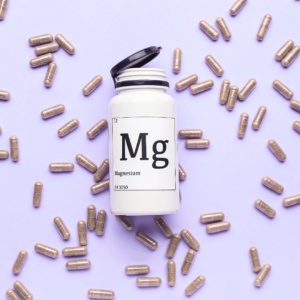There are many different factors that support your fertile potential and the health of your future baby. One foundational pillar of health that cannot be ignored on your journey to start or grow your family is food! The importance of nutrition cannot be overstated.
The quality of your nutrition is what helps you make your hormones, support ovulation, create a receptive lining, support implantation, help you hold a pregnancy, have a healthy pregnancy and bring your baby earthside.
Every step of the way requires an abundance of vital nutrients. A nourished mother means a nourished baby.
Whilst we are continuing to evolve and expand our understanding of nutrients and how they all work synergistically, it is difficult to say some are more important than others, as they are all co-dependant (in a good way!).
However when it comes to fertility, there are absolutely some critical nutrients we want to make sure are supported and optimised during your preconception time and also continue throughout pregnancy.
- Folate: one nutrient (hopefully) almost everyone knows is crucial for pregnancy. Folate is B9, and often referred to as simply “folic acid”, however folic acid is one type of a synthetic form of folate found in most general prenatals. Folate is the naturally occurring form found in food. Folate is essential for DNA synthesis and repair, which is vital for supporting both egg and sperm quality. It also plays a large role in hormonal regulation and ovulation. During pregnancy folate continues to be important for DNA synthesis and repair (for which there is a lot occurring during pregnancy!) and helps to build robust healthy humans free of birth defects as well as supporting placenta function.
- Choline: a nutrient similar to a B vitamin, choline plays an important role in the development of the brain, spinal cord and nervous system during pregnancy. It also plays a role in metabolism, ovulation and hormonal regulation. Some researchers have likened the importance of choline for fertility and pregnancy to be comparable with folate! And yet it is not well known by the general public. Choline requirements skyrocket during pregnancy, so make sure to be consuming lots of food based sources of choline in your preconception time.
- B12: this vitamin plays an important role in red blood cell formation, DNA synthesis and helps to support healthy ovulation and fertility. Low levels of B12 are associated with compromised ovulation, lower egg quality, impaired embryo implantation and increased risk of miscarriage and birth defects. During pregnancy, B12 is similar to folate and choline in its influence on the development of the brain, nervous system as well as red blood cell formation for baby. Low levels of B12 during pregnancy are
associated with compromised placenta function, preterm labour, low birth weight, and developmental delays.
- Vitamin D: both a hormone and a vitamin, vitamin D plays a role in every single stage of fertility, conception and pregnancy. Vitamin D supports hormone production and regulation, egg quality, ovulation, how well an egg is able to be fertilised by sperm, embryo growth, embryo implantation, placenta formation and foetal development.
Vitamin D is crucial each step of the way. Low vitamin D levels are associated with anovulation, delayed ovulation, PCOS, endometriosis, PMS, poor egg quality, ovarian cysts, miscarriage and low progesterone. If you’re on the fertility path and haven’t yet had your vitamin D levels checked, it may be time!
- Magnesium: perhaps an underrated one when it comes to fertility, magnesium cannot be overlooked! Magnesium is a vital mineral that helps to support FSH, oestrogen, progesterone and testosterone production, helps to support egg quality, reduces inflammation and supports nervous system regulation. Low magnesium can result in low progesterone levels, short luteal phases, compromised egg quality, sex hormone production, ovulation and chronic inflammation. Due to non regenerative industrial farming practices, the earth’s soil is in a chronic state of magnesium depletion, meaning it’s not getting into our food in quantities it once did. Whilst always focusing on food sources, consider speaking with your trusted women’s health practitioner if magnesium supplementation may be appropriate for you.
Bonus!
- Protein: this may be the most overlooked one of all – protein! Protein is critical for fertility and pregnancy. Protein requirements go through the roof during pregnancy, start getting into the habit of increasing your protein intake whilst on your fertility path. We know protein and amino acids are the building blocks of our cells, imagine just how much is needed to grow a whole human from your tissues. Balanced protein intake helps to support blood sugar regulation, support hormonal production and regulation, supports egg and follicle quality and supports the immune system (immune dysfunction being a growing key cause of infertility).
There are SO many more nutrients that are crucial for fertility, pregnancy and a healthy baby. However the good thing is, if you are getting your nutrients from wholefoods, you will also likely be getting a wide variety of supporting nutrients and co factors.





